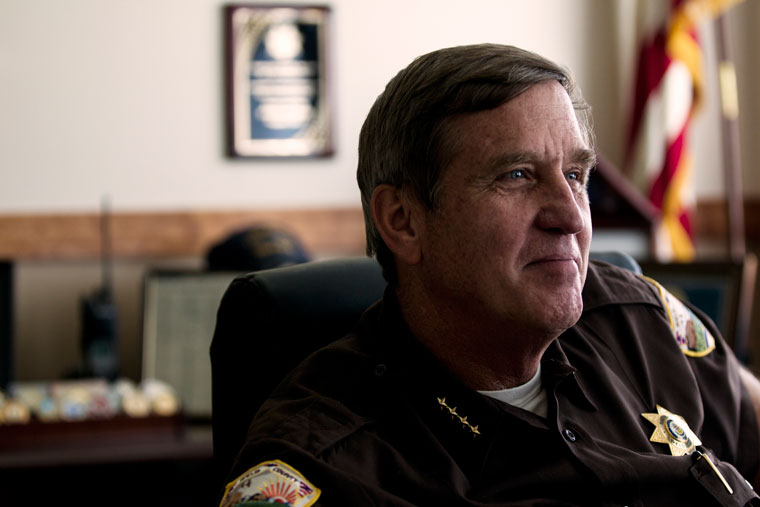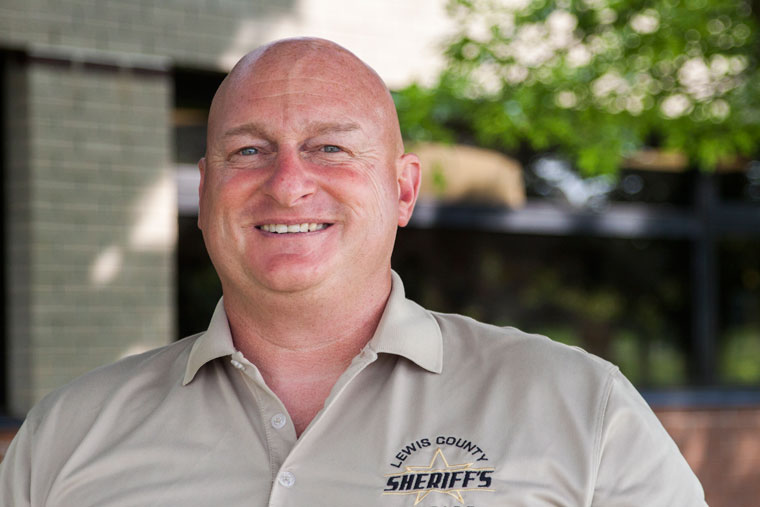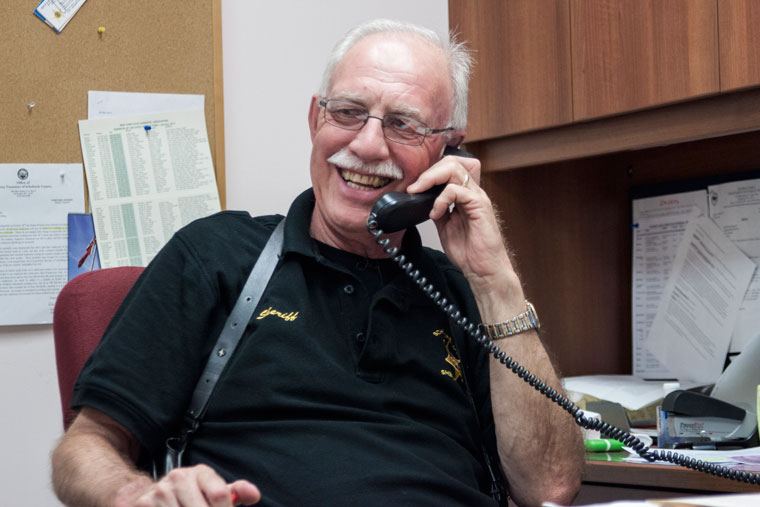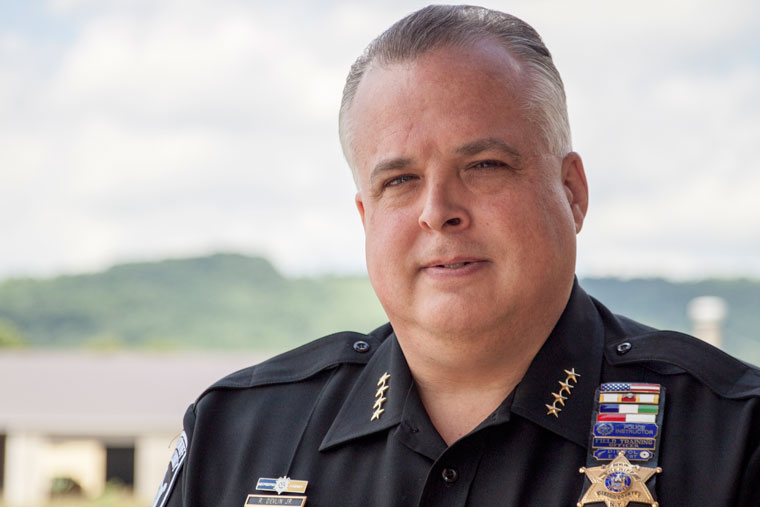A federal judge said the sheriffs couldn’t sue as elected officials, so Weld County Sheriff John Cooke and eight other sheriffs sued as private citizens. Cooke was the lead plaintiff in the lawsuit, which a federal district judge threw out in June. He and the other plaintiffs are preparing an appeal.
“It’s not (the judge’s) job to tell me what I can and can’t enforce,” Cooke said. “I’m still the one that has to say where do I put my priorities and resources? And it’s not going to be there.”
Cooke has won fans with his opposition. He, like Maryland’s Sheriff Lewis, keeps a novel-thick stack of praise and thank-you notes in his office. He’ll run for a Colorado Senate seat in November and is endorsed by the state’s major gun lobby, Rocky Mountain Gun Owners.
Lewis, who is running for re-election this year, said sheriffs have a responsibility to push against what he sees as the federal government’s continual encroachment on citizens’ lives and rights.
“Where do we draw a line?” he asked. “I made a vow and a commitment that as long as I’m the sheriff of this county I will not allow the federal government to come in here and strip my law-abiding citizens of the right to bear arms. If they attempt to do that it will be an all-out civil war. Because I will stand toe-to-toe with my people.”
But Brian Frosh, a Maryland state senator and an FSA sponsor and gun-control advocate of Montgomery County, said Lewis’ understanding of a sheriff’s role is flawed.
“If you are a sheriff in Maryland you must take an oath to uphold the law and the Constitution,” said Frosh, now the Democratic nominee for Maryland attorney general. “You can’t be selective. It’s not up to a sheriff to decide what’s constitutional and what isn’t. That’s what our courts are for.”
Bronx County, New York, Sen. Jeffrey Klein, who co-sponsored the SAFE Act, agreed that sheriffs who refuse to enforce laws they disagree with are acting out of turn. Constitutional sheriffs are not lawyers or judges, Frosh said, which means they are following their convictions instead of the Constitution.
“We had lots of people come in (to testify against the bill) and without any basis say, ‘This violates the Second Amendment,’” Frosh said. “They can cite the Second Amendment, but they couldn’t explain why this violates it. And the simple fact is it does not. There is a provision of our Constitution that gives people rights with respect to firearms, but it’s not as expansive as many of these people think.”
But sheriffs have the power to nullify, or ignore, a law if it is unconstitutional, Maryland Delegate Dwyer said. He said James Madison referred to nullification as the rightful remedy for the Constitution.
“The sheriffs coming to testify on the bill understood the issue enough and were brave enough to come to Annapolis and make the bold stand that on their watch, in their county, they would not enforce these laws even if they passed,” said Dwyer, who has recognized the sheriffs for their courage. “That is the true role and responsibility of what the sheriff is.”
Rural versus Urban Divide
Some rural sheriffs argue that gun control laws are more than just unconstitutional — they’re unnecessary and irrelevant. In towns and villages where passers-by stop to greet deputies and call local law enforcement to ask for help complying with gun laws, they say, firearms are less associated with crime than they are with a hunting and shooting culture that dates back to when the communities were founded.
Edward Amelio, a deputy in Lewis County, New York, shares that sentiment. There’s no normal day for Amelio, who has patrolled the 27,000-person county for eight years. But he usually responds to domestic disputes, burglaries and car accidents. That’s why he considers the SAFE Act unnecessary.
“We issue orders of protection and some contain a clause the judge puts in there saying a person’s guns are to be confiscated,” Amelio said. “That’s mostly when we deal with guns.”
Zachary Reinhart, a deputy sheriff in Schoharie County, New York, said he responds to a wide variety of calls, too.
“Our calls range from accidental 911 dials to domestic disputes to bar fights,” he said. “You can’t really typify a day at the Schoharie County Sheriff’s Office. It’s all pretty helter-skelter.”














